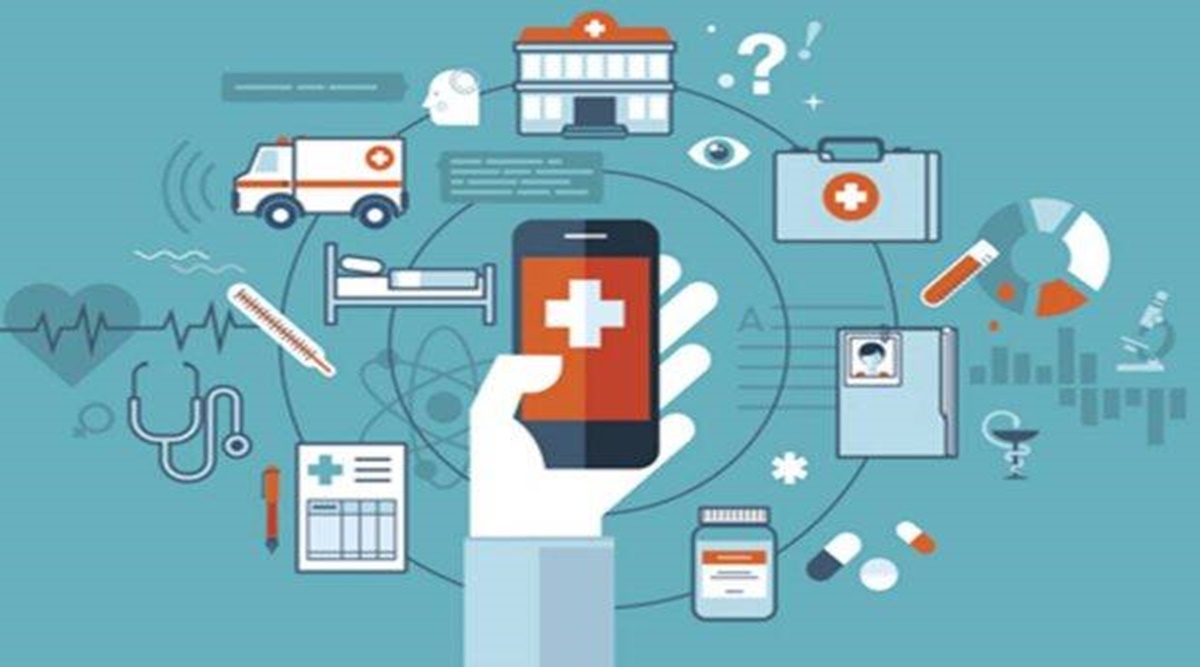
By Dr. Shreeram IyerAs awareness about artificial intelligence and its potential is spreading, so is the faith of various industries in its capabilities of improving production and quality of life. Artificial intelligence is greatly upgrading every point in a sector, enhancing various aspects which are crucial to their longevity. Many sectors have already adapted artificial intelligence in many creative methods, which have been very productive in improving production and supplementing manpower for greater sales and market value.
One sector that is more openly inclining towards artificial intelligence today is the healthcare sector. AI has huge potential in healthcare, as it can bring new improvements and supplement hospitals and other medical institutions, greatly reducing their workload and helping them treat a larger number of patients at one time. Healthcare can make use of machines to analyze and act on medical data, usually with the goal of predicting a particular outcome. Using patient data and other information, AI can help doctors and medical providers deliver more accurate diagnoses and treatment plans and help make healthcare more predictive and proactive by analyzing big data to develop improved preventive care recommendations for patients.
AI can assist doctors, nurses, and other healthcare workers in their daily work. AI in healthcare can enhance preventive care and quality of life, produce more accurate diagnoses and treatment plans, and lead to better patient outcomes overall. It can also predict and track the spread of infectious diseases by analyzing data from a government, healthcare, and other sources. As a result, it can play a crucial role in global public health as a tool for combatting epidemics and pandemics. Smart devices can be critical for monitoring patients in the ICU and anywhere else.
Using artificial intelligence to enhance the ability to identify deterioration or sense the development of complications can significantly improve outcomes and may reduce costs related to hospital-acquired condition penalties. Machine learning algorithms and their ability to synthesize highly complex datasets may be able to illuminate new options for targeting therapies to an individual’s unique genetic makeup.
Almost all consumers now have access to devices with sensors that can collect valuable data about their health. From smartphones with step trackers to wearables that can track a heartbeat around the clock, a growing proportion of health-related data is generated on the go. Collecting and analyzing this data and supplementing it with patient-provided information through apps and other home monitoring devices can offer a unique perspective into individual and population health. Artificial intelligence will play a significant role in extracting actionable insights from this large and varied treasure trove of data.
Artificial Intelligence has enhanced the precision of robot-assisted surgery and made Improvements in deep learning techniques and data logs in rare diseases, helping in developing countermeasures to these diseases. Trained machines can detect any dormant ailments or illnesses within a person’s body, allowing early formulation and execution of treatment plans before any complications would occur.
This can be achieved in a remote manner as well by incorporating artificial intelligence into digital consultation apps to give medical consultations based on the personal medical histories of users as well as information accessible on the internet. Users will report their symptoms onto the application, which can compare against a database of illnesses. The apps can then offer recommendations while taking into account the person’s medical history. This type of technology can be utilized to diagnose and accurately assist people in nations where fewer doctors or medical facilities are available to people. With the increasing capabilities of AI over the internet, advanced machine learning algorithms can allow patients to get accurately diagnosed when they would previously have no way of knowing if they had a life-threatening disease or not.
Using AI in developing nations that do not have the resources will diminish the need for outsourcing and can improve patient care. AI can allow for not only diagnosis of a patient in areas where healthcare is scarce but also allow for a good patient experience by resourcing files to find the best treatment for a patient. The ability of AI to adjust course as it goes also allows customized treatment plans to be developed for each patient; a level of individualized care that is nearly non-existent in developing countries.
(The author is a Founder & CEO, Prisma AI. Views expressed are personal and do not reflect the official position or policy of FinancialExpress.com.)
Source: https://www.financialexpress.com/healthcare/healthtech/how-is-the-healthcare-sector-inclining-toward-artificial-intelligence-worldwide/2613683/